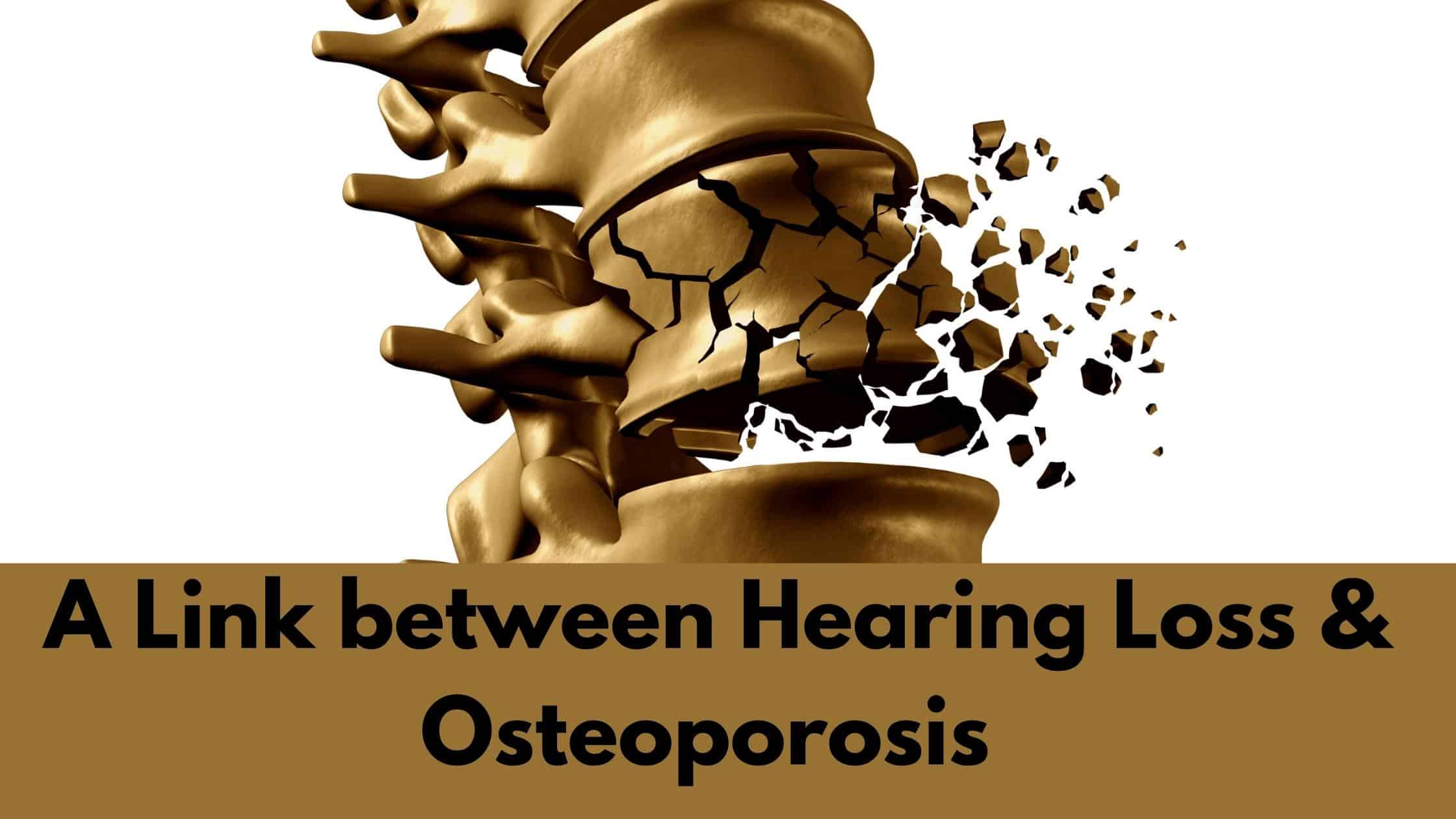
Understanding hearing loss often means looking at the relationship between hearing loss and other health issues. Contemporary research is showing previously overlooked connections between hearing loss and other chronic health conditions. One example of this new knowledge is recent medical studies that have found a significant link between Osteoporosis and the onset of sudden sensorineural hearing loss.
What Is Osteoporosis?
Osteoporosis is a disease where bone mass is reduced, and bone strength weakens. It is associated with aging and can cause unexpected bone fractures. When bone mass drops, bones have less structural integrity and can break far easier. The hallmark of Osteoporosis is bone fragility, and until bone fractures occur, Osteoporosis often goes undiagnosed.
Because Osteoporosis can lead to bone fractures – especially in the hip, wrist, and spine- it is also associated with chronic pain. Some people with Osteoporosis develop a hunched back caused by compression fracturing in the spine. The risk of Osteoporosis is at least four times greater for women than men, with older Asian and Caucasian women running the highest risk of developing the disease. Other risk factors include being malnourished or underweight, a sedentary lifestyle, and low vitamin D levels. Regular exercise and proper nutrition are commonly viewed as the best preventative measures to take against Osteoporosis.
Osteoporosis and Hearing Loss
The tiny weak bones of the inner and middle ear play a role in the link between hearing loss and Osteoporosis. As Osteoporosis progresses, all of the body’s bones, even the ones that allow you to hear, suffer.
A study from Brigham and Women’s Hospital looked at data from almost 144,000 women over 34 years and discovered that those with moderate or worse hearing loss were up to 40% more likely to have Osteoporosis. “Because adult-onset hearing loss is often irreversible,” study leader Sharon Curhan, MD, ScM, explained.
“We were inspired by a recent study that revealed that the differences in the composition and metabolism of the bones in the spine and the hip may reflect differences in the composition and metabolism of these skeletal locations,” Curhan explains.
These findings show how hearing loss is caused by changes in the bone surrounding the middle and inner ear.
Previous research linking hearing loss and Osteoporosis
Another study from South Korea in 2019 looked at health data from over 68,000 subjects. Participants in the study were identified from their medical records, insurance data, and treatment records for sudden hearing loss. Comparing patients over the age of 50 with and without Osteoporosis, the study found that those with Osteoporosis were 40% more likely to experience sudden sensorineural hearing loss.
Although a 40% risk increase is a dramatic spike, the overall risk of sudden hearing loss remains relatively low. In the general population between 50 and 60, roughly 15 people out of 100,000 will face SSNHL. In the general adult population of the study, 0.5% of people without Osteoporosis developed sudden hearing loss, and that rate jumped to 0.8% for subjects with Osteoporosis.
Osteoporosis Prevention
While many of the variables that raise your risk of developing Osteoporosis may appear to be beyond your control, this is not entirely accurate. It is possible to prevent the problem from worsening by eating a nutritious diet rich in calcium and vitamin D. Excessive tobacco and alcohol consumption can also increase your risk. Developing lifelong healthy eating and lifestyle habits could have significant implications for future bone and hearing health.
Treating Hearing Loss
Seeing our specialists at the onset of any hearing loss can give you access to medical care that supports hearing recovery. Additionally, a hearing specialist can help treat permanent hearing loss. Managing hearing loss with hearing aids and assistive devices helps alleviate the stress hearing loss causes and improves your quality of life.
Staying on top of your hearing health is important; that’s why we specialize in comprehensive hearing care. We place your needs at the center of your care, from testing to analysis to solutions and support. We consider related conditions and lifestyle factors when planning for managing hearing issues thoroughly and effectively. When you have a hearing concern, reach out to us today.
